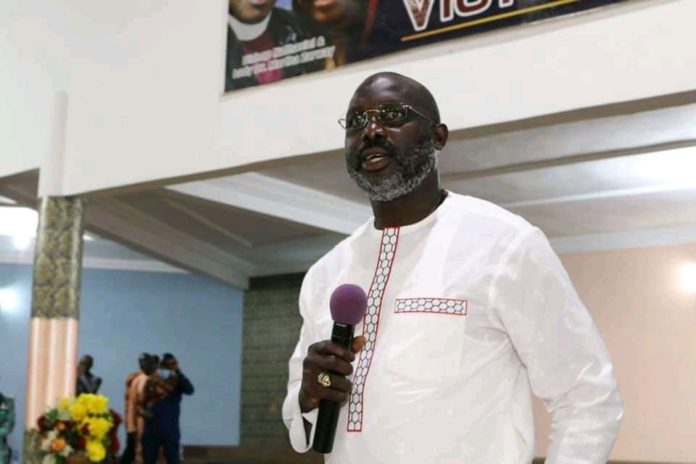
The Liberian government has responded to recent statement by outgoing U.S. Ambassador Michael McCarthy regarding the state of some health, education and service centers in the rural parts of the country.
In a press release issued on April 26, the government acknowledged the concerns but noted that the narrative as expressed by Ambassador McCarthy was inaccurate.
The government highlighted its efforts to improve critical infrastructure and invest in health and education, despite global economic challenges that have slowed growth in many parts of the world.
The recently concluded 3rd International Symposium for Community Health Workers hosted in Monrovia was cited as a “powerful example” of the country’s dedication to building a health workforce.
The government through the Minister of Information, Cultural Affairs and Tourism, Ledgershood Rennie, also clarified that the $60 million referenced by Ambassador McCarthy was not entirely coming to the government of Liberia, but was expended through USAID’s own funding mechanisms, directly to select project implementers.
The government said it remains grateful for the goodwill and support it continues to receive from all development partners, including the U.S. government.
The Liberian government also added it values the longstanding partnership it shares with the U.S., and believes that open communication between both governments is important to the sustenance of this historical tie.
The Ministry of Finance and Development Planning and the Ministry of Health provided data as proof of Cash Disbursement to Health Facilities Nationwide For Year Ended FY2022 to correct the assertions made in the Ambassador’s statement that no funding was reaching healthcare centers.
The data revealed that about $7.2 million was disbursed to more than 70 hospitals, clinics, and health centers across Liberia, representing operational activities and excluding salaries of employees, rent, drugs, and vaccines, which are provided by the Central Government through the National Budget or with assistance from Development Partners.
The report showed that some facilities received their operational support in both United States Dollars and Liberian Dollars while others received exclusively in Liberian dollar or United States Dollars.
The top 10 receivers accounted for about $3.8 million or 59 percent of the total $7.2 million disbursed to the 70 plus health facilities across Liberia.
The top 10 receivers included referral hospitals such as Jackson F. Doe, CB Dunbar, Phebe hospital school of Medicine, Telleweyon John F. Kennedy Memorial, and Redemption hospital, etc.
The Liberian government remains dedicated to investing in critical health infrastructure across the country as it builds clinics and hospitals while also prioritizing human capital development.
The government is also strengthening the free and compulsory primary education initiative, improving school infrastructure, and developing standard curriculums, leading to major improvements in students’ performance in WAEC/WASSE.
However, Amb. McCarthy in a release alleged that the blocking of resources to health and other public facilities in is so complete that it must be institutional and the lack of any alarm being raised indicates a ‘syndicate’ involving players at the legislature, the Ministry of Health, and the Ministry of Internal Affairs.
“In one town, administrators look with anticipation mixed with fear at the brand-new, modern hospital that sits vacant, knowing that they can barely keep the existing makeshift facility going, and running the new one will require ten times the resources”, Ambassador McCarthy adds.





















